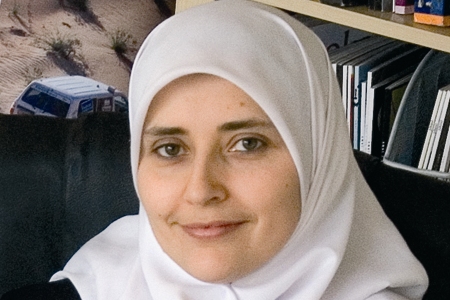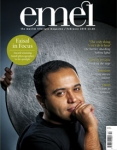
Paradise with neighbours
Issue 65 February 2010
I recently attended the funeral of my 85-year old neighbour. Eileen was a widow. Her husband had died 16 years ago. She never had any children and lived alone with an aged rescue dog called Jackie. She would not answer the door if you rang her bell, and guarded her independence fiercely. She did not have visitors and was not easy to help. If you offered to do her shopping, she would refuse. “The walking keeps me alive,” she would tell you. She would occasionally come to ask for help, and we would do what we could.
At one point, there was a particularly difficult family who had rented the house in-between Eileen’s house and mine. The husband was afraid of the dog and he went to kick it. Eileen saw this as a wicked thing, and for her he was kicking her only companion. One day she was out in the street shouting, “Terrorists!” The police were called and I stepped in to calm things down. The family were from Somalia, and I must confess to being very angry with them. Eileen’s age demanded that they should have respected her needs. As Muslims, I felt they should have taken from the Qur’an which reminds everyone, “Serve God, and join not any partners with Him; and do good - to parents, kinsfolk, orphans, those in need, neighbours who are near, neighbours who are strangers, the companion by your side, the wayfarer you meet, and what your right hands possess.” (4:36)
Some would call Eileen cantankerous, yet I liked her. One day we stopped to talk on the street, and she looked at me. “I like you,” she said, surprised. I don’t think she liked many people. She liked our children too, and would always come with a gift at Christmas, a box of chocolates and a pound or two for each of the children. We would have presents ready for her and Jackie waiting by our front door.
The past few months of her life had been hard as she was in and out of hospital. I too had been ill – in and out of hospital – and did not see her much. And then, one evening, I saw that her house was boarded up. It took numerous phone calls to hospitals and police to eventually find out that she had died.
Ever since her death I can’t quite still myself. I feel like I did not do enough for her in her life or at her death. I can find my excuses – a busy life, working full time, bringing up three young children, she was difficult, etc. etc. But I feel particularly uneasy inside that I did not visit her in hospital when she was ill. And I am reminded of the Hadith Qudsi, “’O son of Adam, I fell ill and you visited Me not.’ He will say: ‘O Lord, and how should I visit You when You are the Lord of the worlds?’ He will say, ‘Did you not know that My servant so-and-so had fallen ill and you visited him not? Did you not know that had you visited him you would have found Me with him?’” I missed seeing Eileen, and I missed that opportunity to find God. I know in my heart I could have done more, and now the chance to help her is just not there anymore.
And I wonder how many more old people are out there like Eileen. They are hard to help and they turn you away, but they need our help. They can be grumpy and miserable, but they need company. They are fiercely independent, but they are not quite strong enough anymore to be so independent. We read horror stories of elderly people lying dead for months, even years.
It’s easy to say, “She’s not my relative; not my responsibility.” But they are our neighbours. The Qur’an and Prophet Muhammad’s teachings constantly remind us of our duty of care to the neighbour. Indeed, every religious text I can think of tells us to love our neighbour as ourselves. Even legal concepts, like the duty of care, have been derived from the idea of the neighbour.
For Muslims, the breakdown of the family has not yet extensively hit the communities. I can think of very few Muslim elderly living alone or in care homes. That is not to say it will not happen though, and if we imagine we are the future elderly and lonely neighbour, how would we like to be treated?
Our elderly neighbours can present for us a pathway to paradise. If we can extend human kindness to them, we will not only provide them with the dignity they deserve, but will grant ourselves an increase in our own humanity. We can’t just leave the care of the elderly to social services, though they too have a role to play. As individuals we have to decide what type of society we want to live in, and then take the responsibility to create it.
Bookmark this |
|
Add to DIGG |
|
Add to del.icio.us |
|
Stumble this |
|
Share on Facebook |
|
Share this |
|
Send to a Friend |
|
Link to this |
|
Printer Friendly |
|
Print in plain text |
|


Comments
1 Comment
1
NO
29 Jan 10, 18:32
Salaam
When I started reading this I got a bit of a shock. My dear elderly neighbour was called Eileen.
I was quite close to her despite her English reserve and self reliance.
I really hoped I'd always be able to help her.
We moved after being her neighbour for 13 years. She was heartbroken and we kept in touch by letter.
I didn't get to attend her funeral but I'm sure I knew when she passed away...I felt her presence.
I had to make the difficult decision NOT to send her flowers. She hated that type of thing. She preferred someone needy got something instead.
I wanted people to know about her; but what to tell them?
I don't see folk as grumpy or old. I see a lifetime of experience wrapped in a fragile package. May we always value our seniors InshAllah.